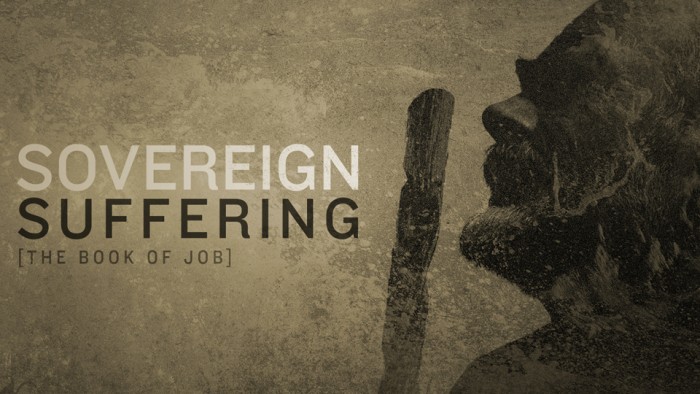“A minister may fill his pews, his communion roll, and the mouths of the public, but what that minister is on his knees in secret before God Almighty, that he is and no more.” – John Owen
Short Books to Help Your Church
Church members and regular attenders alike often wonder about certain aspects of the Christian faith. One way pastors can help is to be ready in season and out of season to assist the curious or doubting soul. Another thing they can do is have a stockpile of resources available for anyone interested in further study.
The Good Book Company has quietly been publishing a useful series of books entitled, “Questions Christians Ask.” A quick perusal of the series’ current volumes reveals how strategic GBC is; these books definitely answer the ordinary questions Christians ask. The writing is clear, the theology is ecumenical, and the answers are biblically “to the point.”
You may want to have a few of these titles in your church’s bookstore.
CLEAR ANSWERS TO COMMON QUESTIONS
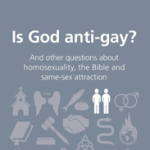 Is God Anti-Gay? And Other Questions about Homosexuality, the Bible and Same-Sex Attraction by Sam Allberry. Christians, the church and the Bible seem to be out of step with modern attitudes towards homosexuality. Does the Bible prohibit gay marriage? How can we oppose people who are in love, and just expressing how they were made? Can God really be anti-gay? This short, readable book offers a positive and liberating way forward. It explains clearly and simply what we can say with certainty from the Bible about marriage, sexuality and same-sex attraction.
Is God Anti-Gay? And Other Questions about Homosexuality, the Bible and Same-Sex Attraction by Sam Allberry. Christians, the church and the Bible seem to be out of step with modern attitudes towards homosexuality. Does the Bible prohibit gay marriage? How can we oppose people who are in love, and just expressing how they were made? Can God really be anti-gay? This short, readable book offers a positive and liberating way forward. It explains clearly and simply what we can say with certainty from the Bible about marriage, sexuality and same-sex attraction.
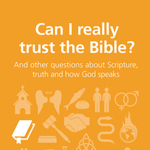 Can I Really Trust the Bible? And Other Questions about Scripture, Truth and How God Speaks by Barry Cooper. The Bible makes big claims for itself. But do those claims stand up? Aren’t the stories just legends? Hasn’t the information been corrupted over time? Isn’t the Bible full of mistakes? And isn’t it culturally outdated? In this absorbing little book, Barry Cooper explores these questions—and many others—with warmth, wit and integrity.
Can I Really Trust the Bible? And Other Questions about Scripture, Truth and How God Speaks by Barry Cooper. The Bible makes big claims for itself. But do those claims stand up? Aren’t the stories just legends? Hasn’t the information been corrupted over time? Isn’t the Bible full of mistakes? And isn’t it culturally outdated? In this absorbing little book, Barry Cooper explores these questions—and many others—with warmth, wit and integrity.
 Did the Devil Make Me Do It? And Other Questions about Satan, Demons and Evil Spirits by Mike McKinley. Many Christians are confused about the devil. When Jesus walked the earth, he cast out demons and had powerful encounters with the devil. But who exactly is the devil, and where did he come from? And what is he up to in the world today? This short, readable book explains clearly and simply what we can say with certainty from the Bible about Satan, demons and evil spirits.
Did the Devil Make Me Do It? And Other Questions about Satan, Demons and Evil Spirits by Mike McKinley. Many Christians are confused about the devil. When Jesus walked the earth, he cast out demons and had powerful encounters with the devil. But who exactly is the devil, and where did he come from? And what is he up to in the world today? This short, readable book explains clearly and simply what we can say with certainty from the Bible about Satan, demons and evil spirits.
 Who on Earth Is the Holy Spirit? And Other Questions about Who He Is and What He Does by Tim Chester and Christopher de la Hoyde. Many people find it easy to understand about God and Jesus, but struggle to understand quite how and where the Holy Spirit fits into the picture. Who exactly is he? And how does he work in our lives? This short, readable book explains clearly and simply what we can say with certainty from the Bible about who the Holy spirit is, and how he is at work in the world today.
Who on Earth Is the Holy Spirit? And Other Questions about Who He Is and What He Does by Tim Chester and Christopher de la Hoyde. Many people find it easy to understand about God and Jesus, but struggle to understand quite how and where the Holy Spirit fits into the picture. Who exactly is he? And how does he work in our lives? This short, readable book explains clearly and simply what we can say with certainty from the Bible about who the Holy spirit is, and how he is at work in the world today.
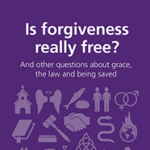 Is Forgiveness Really Free? And Other Questions about Grace, the Law and Being Saved by Michael Jensen. Forgiveness is a free gift—not earned or deserved—we are told. But then the Christian life seems to have a long list of “do’s” and “don’ts.” so is forgiveness really free—or is it al a cosmic con trick? This short, readable book, explains clearly and simply what the Bible, and Jesus himself, says about grace, the law and what it means to be saved.
Is Forgiveness Really Free? And Other Questions about Grace, the Law and Being Saved by Michael Jensen. Forgiveness is a free gift—not earned or deserved—we are told. But then the Christian life seems to have a long list of “do’s” and “don’ts.” so is forgiveness really free—or is it al a cosmic con trick? This short, readable book, explains clearly and simply what the Bible, and Jesus himself, says about grace, the law and what it means to be saved.
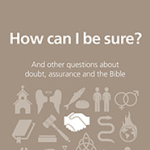 How Can I Be Sure? And Other Questions about Doubt, Assurance and the Bible by John Stevens. Many Christians experience times of doubt and uncertainty. At various times we can ask: “Does God love me?” “Am I really a Christian?”— and even “Is there a God at all?”! This short, readable book unpacks the difference between good and bad doubt, shows us where it comes from and how to deal with it in ourselves and others. It explains clearly and simply the liberating reality of what the Bible tells us about doubt, assurance and the Christian life.
How Can I Be Sure? And Other Questions about Doubt, Assurance and the Bible by John Stevens. Many Christians experience times of doubt and uncertainty. At various times we can ask: “Does God love me?” “Am I really a Christian?”— and even “Is there a God at all?”! This short, readable book unpacks the difference between good and bad doubt, shows us where it comes from and how to deal with it in ourselves and others. It explains clearly and simply the liberating reality of what the Bible tells us about doubt, assurance and the Christian life.
 What Happens When I Die? And Other Questions about Heaven, Hell and the Life to Come by Marcus Nodder. We all have questions about death. Despite the strong assurance the Bible gives us about life beyond the grave, Christians are often troubled by other questions. What will happen on the day of judgement? Will we have bodies in heaven? Will there be rewards? These short, readable book explains clearly and simply what we can say with certainty from the Bible about dying, death and life beyond the grave.
What Happens When I Die? And Other Questions about Heaven, Hell and the Life to Come by Marcus Nodder. We all have questions about death. Despite the strong assurance the Bible gives us about life beyond the grave, Christians are often troubled by other questions. What will happen on the day of judgement? Will we have bodies in heaven? Will there be rewards? These short, readable book explains clearly and simply what we can say with certainty from the Bible about dying, death and life beyond the grave.
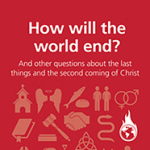 How Will the World End? And Other Questions About The Last Things and The Second Coming of Christ by Jeramie Rennie. Christians believe that history is moving towards a dramatic conclusion—that one day Jesus Christ will return in glory to judge the living and the dead. But there seem to be so many different views about how this will happen, and when it will take place. How can we make sense of it all? This short, readable book explains clearly and simply the liberating reality of what the Bible is actually saying about the return of Christ and the end of the world.
How Will the World End? And Other Questions About The Last Things and The Second Coming of Christ by Jeramie Rennie. Christians believe that history is moving towards a dramatic conclusion—that one day Jesus Christ will return in glory to judge the living and the dead. But there seem to be so many different views about how this will happen, and when it will take place. How can we make sense of it all? This short, readable book explains clearly and simply the liberating reality of what the Bible is actually saying about the return of Christ and the end of the world.
True Christians Love the New Birth
I’m sure you have a friend or family member who is a sucker for all things new. Maybe it’s the latest Apple product I know people whose love of new is seen in their clothes, others in their hair, others in their car, and still other in whichever new diet craze is sweeping the country.
What “new” things do you most love? Among the many things John is at pains to pass along in his first letter is the fact that true Christians love spiritual things more than worldly things. I often tell my church members – in shepherding conversations – that disciples of Christ should not be popularly known as a fanatic of worldly things; we should be known as a lover of the things of God. And one thing that 1 John says true Christians love is the new birth.
1 JOHN ON THE NEW BIRTH
Some of you might remember that dark night in Jerusalem when the religious leader Nicodemus covertly came to speak with Jesus. Nicodemus began the conversation by saying Jesus must come from God because no one could possibly do the things He was doing if God wasn’t with him. Do you know what Jesus said in response? It wasn’t, “Thanks,” or, “You got that right brother.” It was, “Truly, truly, I say to you, unless one is born again he cannot see the kingdom of God.” You are not a Christian if you haven’t been born again. Let’s scan through this letter to see what John says about being born again, what he says about the new birth:
- “You may be sure that everyone who practices righteousness has been born of him.” (2:29)
- “No one born of God makes a practice of sinning, for God’s seed abides in him, and he cannot keep on sinning because he has been born of God.“ (3:9)
- “Beloved, let us love one another, for love is from God, and whoever loves has been born of God and knows God. (4:7)
- “Everyone who believes that Jesus is the Christ has been born of God, and everyone who loves the Father loves whoever has been born of him.” (5:10)
- “For everyone who has been born of God overcomes the world. And this is the victory that has overcome the world—our faith.” (5:4)
- “We know that everyone who has been born of God does not keep on sinning, but he who was born of God protects him, and the evil one does not touch him.” (5:18)
2 REASONS TO LOVE THE NEW BIRTH
First, the new birth comes from sovereign power. Did you notice how every single time John mentions the new birth he does so by saying either “born of God” or “born of him”? “The new birth . . . is not a work of man. No human makes the new birth happen. No preacher and no writer can make it happen. You can’t make it happen yourself. God makes it happen. It happens to us, not by us.”1 If you aren’t sure you like this sovereign language of the new birth I would simply invite you to consider your own physical birth. Which one of us chose to be born? I mean I can’t even remember anything before the age of five or six. I may have cooperated with the process of my physical birth, but I did not control any of it. The continual testimony of Scripture is that God is the one who makes dead sinners alive. So this new birth comes from sovereign power and . . .
Second, the new birth contains sin-breaking power. Look again at some of those verses we just read:
- “You may be sure that everyone who practices righteousness has been born of him.” (2:29)
- “No one born of God makes a practice of sinning, for God’s seed abides in him, and he cannot keep on sinning because he has been born of God.“ (3:9)
- “We know that everyone who has been born of God does not keep on sinning, but he who was born of God protects him, and the evil one does not touch him.” (5:18)
The new birth breaks the power of sin. “He breaks the power of canceled sin, he sets the prisoner free.” Those chains of sin that shackled your soul before faith in Christ have been broken once and for all. You are no longer a slave to sin and Satan, but are now a slave to Jesus and righteousness (cf. Rom. 6:20-22).
In his excellent study of the new birth entitled Finally Alive, John Piper writes,
If your heartache is for your own personal change, or for change in your marriage, or change in your prodigal children, or in your church, or in the systemic structures of injustice, or in the political system, or in the hostilities among nations, or in the human degradation of the environment, or in the raunchiness of our entertainment culture, or in the miseries of the poor, or in the callous opulence of the rich, or in the inequities of educational opportunity, or in arrogant attitudes of ethnocentrism, or in a hundred areas of human need caused by some form of human greed– if your heart aches for any of these, then you should care supremely about the new birth.
There are other ways of shaping culture and guiding behavior. But none so deep. None so far-reaching. None so universally relevant. None so eternally significant.2
True Christians love the new birth. What we need to see from this second test is not only if we have truly been born again, but also if our faith is a living faith. There is a reason I call this the experiential test. Our life in Christ is not some cold lifeless truth, rather it is a faith that is lived and experienced. The new birth changes everything: our goals, desires, hopes, actions, thoughts, and motives are all unchangeably altered. I mean think about the family you’ve been born into and how life defining that experience has been. When my boys are born they not only receive a name, but an identity, a way of life, a worldview, and a stated purpose. How much greater it is to be born into God’s family! What love this ought to generate in our lives.
———————————————————————————————————
The Mission of the Son of God
Have you ever wondered how you might know you really are a Christian? What are those things that distinguish true faith from false faith? How might you be able to biblically affirm the salvation of a friend or family member? Arguably the best place to turn in Scripture to answer such questions is the letter of 1 John.
The purpose of 1 John is for you to know that you believe Jesus is the Son of God (1 John 5:13). The “apostle of love” gives us a series of tests to tease out the reality of our faith. One of them is a doctrinal test that we might put simply as: True Christians know and love Jesus as the Son of God.
“Whoever confesses that Jesus is the Son of God, God abides in him, and he in God.” – 1 John 4:15
THE SON’S MISSION
For John, loving Jesus as the Son doesn’t just mean knowing He is the Son, but also knowing what He accomplished as the Son. There are four things in particular I want you to see about the Son’s mission according to 1 John.
A mission of destruction. Look at 3:8, “Whoever makes a practice of sinning is of the devil, for the devil has been sinning from the beginning. The reason the Son of God appeared was to destroy the works of the devil.” The Son came to destroy Satan’s works; namely his work of sin and death.
A mission of propitiation. Turn to 4:10, “In this is love, not that we have loved God but that he loved us and sent his Son to be the propitiation for our sins.” Do you know what propitiation means? A few years ago I wrote an article saying that “propitiation” is my favorite word in all the New Testament. To propitiate is to satisfy God’s wrath. It was on the cross that Jesus suffered, and His greatest anguish was not the immense physical pain associated with crucifixion, but the agony of being treated by the Father as a sinner. He who knew no sin was made to be sin, and so suffered the wrath of God. And His suffering was perfect for God’s wrath was satisfied. As the hymn says, “Til on that cross as Jesus died, the wrath of God was satisfied.”
What do you think about God’s wrath towards sin? Is it something you want to apologize for or remove from the Bible? Last summer a mainline Presbyterian denomination, the PCUSA, published a new hymnbook and much hullaballo ensued about their decision to not include “In Christ Alone” in the book. They’d contacted the Keith Getty and Stuart Townend (writers of “In Christ Alone”) asking them if the denomination could change “the wrath of God was satisfied” line to “the love of God was magnified.” The writers declined and the denomination yanked it from the hymnbook. God’s wrath is something they’d rather remove than sing about, and what they don’t realize is that to apologize for God’s wrath robs Jesus of due honor and praise. To lessen the wrath of God is to make light of the sin of men and rob majesty from Jesus’ work of propitiation.
A mission of salvation. Skip a couple verses down to 4:14, “And we have seen and testify that the Father has sent his Son to be the Savior of the world.” Easy enough: Jesus came to save sinners like you and me.
A mission of mediation. Look back to the beginning of chapter two. In 2:1 John says, “My little children, I am writing these things to you so that you may not sin. But if anyone does sin, we have an advocate with the Father, Jesus Christ the righteous.” The Son is our advocate, our mediator. This is one of those roles of Christ that can easily get lost in translation today because the original Greek is depicting something more like a covenant lawyer. If you were to stand in God’s courtroom Satan would be the prosecuting attorney and he would have no shortage of evidence to convict you as a sinner worthy of death. But if you trust in Jesus saving work you will find that the Son will stand next to you as your defense lawyer, your advocate. He will mediate for you before the Father. His righteousness will be counted as your righteousness, and through faith you will hear the Father declare you not guilty.
THE SON DOESN’T NEED CYNICS AND CRITICS
Do you see how necessary it is that you love Jesus as the Son? There is no hope without it. Whoever loves the Son has life, who ever does not has no life (1 John 5:12). Do you believe Jesus is the Son of God and love Him as such?
One other thing I want to mention is what this doctrinal test tells us about a Christian’s relationship to God’s revelation. Look at 5:9-10. There John says, “If we receive the testimony of men, the testimony of God is greater, for this is the testimony of God that he has borne concerning his Son. Whoever believes in the Son of God has the testimony in himself.”
John’s is essentially saying, “If you so easily receive the testimony of men, how much more should we receive the testimony of God.” I wonder when this week you have received some kind of news – some testimony – from a friend or family member. How quick were to you believe their words? I would assume that when it comes to your trusted friends and family members, you rarely doubt what they say. How much more should we trust the testimony of God’s Spirit! Notice 5:6, “And the Spirit is the one who testifies, because the Spirit is the truth.” Here’s a simple application from chapter 5: If you would love Jesus, you must trust His word. What we see all through John’s gospel is the Spirit comes to work in and through the Word. He inspired it to bear witness to Jesus Christ. What’s your general posture to the word? One of submission or cynicism? Cynics and critics have a hard time loving Jesus.
The Son of God doesn’t need your cynicism or criticism; He calls for your devotion.
This sermon is adapted from an upcoming sermon that is an overview of 1 John.
Dangerously Valuable
“You are not allowed to use one-arm swimmers in a sermon,” my pastoral mentor said. I gave the only appropriate response to such a declaration, “Huh? What are you talking about?”
“Sermon illustrations that have no point,” he answered. “Just like a one-arm swimmers, you are doing a lot of work and just going in a circle. Only illustrate something that needs illustrating.”
Ne’er a week goes by in sermon prep when I don’t think about one-arm swimmers. What is the proper place of illustrations in preaching? Is there any place at all?
LET THE MASTERS SPEAK
Recently, after conversing on the place of illustrations with a church member I decided to hit some influential preaching books and see what the masters say about my mentor’s conviction and the overall value of illustrations.
I know Bryan Chapell wouldn’t agree with my mentor’s one-arm swimmer sentiment. In Christ-Centered Preaching Chapell writes, “The primary purpose of illustration is not to clarify but to motivate. Preachers who fail to undersand this will assume that when the point they are making is clear, they do not need an illustration. Preachers who grasp the true power and purposes of illustration know that the most clear points often deserve the best illustrations to make the truth as significant to the hearer as it is in Scripture.” If you’ve ever heard Chapell preach you know he teaches what he practices. The good doctor loves illustrations.
In his Faithful Preaching Tony Merida “agree[s] with Chapell’s rationale” that sometimes the thing that most needs illustration is that which is clearest.
So say the captains of the “Pro One-Arm Swimmers Club.”
There are a group of professors and practitioners who commend wise use of illustrations and don’t really care about whether or not the point is already clear enough from Scripture. Haddon Robinson is one of them. He says the best illustrations “work with argument to gain acceptance.” His sentiment can be summarized as: judiciously illustrate wherever and whenever.
In his magisterial Between Two Worlds Stott is his typically – and gloriously – plain self, writing, “I cannot help agreeing that a Christian has no possible excuse for neglecting illustrations, for there is ample divine [and historical] precedent to encourage him.” Scatter ’em throughout the sermon is Stott’s standard.
I’m sure many seasoned preachers would agree with Alex Motyer who says, “Illustrations in a sermon don’t help me, and I have to keep reminding myself that they do help other people, and must therefore be thoughtfully used. When listening to a sermon, if I sense an illustration coming on, I want to call out to the preacher, ‘Yes, yes, we know all that. Please get on with the job!’ But I know that my attitude has been formed by enforced listening regularly to a (very kindly and effective) preacher who abounding in what he called ‘little stories’. . . . To tell you the truth, I have come to the conclusion that the chief usefulness of illustrations is to give our hearers a little rest!”
I couldn’t agree more with Motyer myself.
Then there are a few who seem to agree with my sagacious mentor.
A BALANCED [AND MAYBE RELUCTANT] APPROACH
In their co-authored volume Preach Mark Dever and Greg Gilbert admit that illustrations have a place, but they point out a significant problem illustration can bring. Dever recalls “hearing a sermon some years ago in which a preacher gave a ten- or fifteen-minute illustration in a half-hour sermon. In all honesty it was a good story that he told well and convincingly. I remember the details of it even now. I remember the plot line of the story. In fact, I even remember some of the names of the people involved, and that’s highly unusual for me. But here’s the rub: I could not begin to tell you the passage of Scripture this brother was preaching on, or what his points were, or the spiritual impression of the text. I don’t even remember the point he was illustrating with the story. All I remember is the story.”
What Dever is getting at is something The Doctor makes even more explicit in his timeless ruminations Preaching and Preachers. He says, “Stories and illustrations are only meant to illustrate truth, not to call attention to themselves.” Many of us are familiar with that fine line. I recently told someone I had to rewrite the end of my sermon because it concluded with an illustration that, although likely to powerfully move the congregation’s heart, wasn’t really incontrovertibly tied to the text. Should I have used it Lloyd-Jones would freely accuse me of “professionalism” and playing “the art of the harlot” for it would have paid “too much attention to, and is too much concerned about, enticing people.”
MLJ would seem to go against Chapell on this point. For Chapell says illustrations are all about “motivating” people and I think his definition of motivation is exactly what The Doctor would call enticement.
One paragraph from Lloyd-Jones on this issue is worth quoting in full:
As the result of listening to preachers for many years, preaching myself, and discussing these matters, and considering them constantly, I am prepared to go so far as to say that if you use too many illustrations in your sermon your preaching will be ineffective. To do so always means loss of tension. There is the type of preacher who after saying a few words says, ‘I remember’ – then out comes the story. Then after a few more remarks again, ‘I remember.’ This means that the theme, the thrust of the Truth, is constantly being interrupted; it becomes staccato, and in the end you feel that you have been listening to a kind of after-dinner speaker or entertainer and not to a man proclaiming a grand a glorious Truth. If such preachers become popular, and they frequently do, they are popular only in a bad sense, because they are really nothing but popular entertainers.”
Safe to say The Doctor would be against one-arm swimmers in your sermon? No doubt.
SOMETHING THAT LASTS
The final sentence in that paragraph above strikes a chord I often feel. Masters of illustration are almost invariably popular, but how many have stood the test of time? None that I know of. Rattle off the names of those preachers mightily used by God throughout the centuries and you will find many common denominators. Sparseness in illustration would be one of them.
This is not to say they would be, ipso facto, against illustration. I mean, The Prince himself gave an entire lecture extolling the virtues of “Illustration in Preaching.” But read his sermons and tell me I doubt you’d say his use of illustration looks anything like what we commonly see and hear today.
To return to where we began, “What is the proper place of illustrations in preaching?” My answer would be, “Their place is to provide an undeniably subordinate, yet colorful, hue on the truth of sacred Scripture.” So I probably stand in the strange chasm between Dever/MLJ and Motyer.
Illustrations are dangerously valuable. They can help and they can harm. Remind yourself often, there is power in the Word, not in your stories. Your people will never feel that if you don’t feel it yourself.
Pull out your sermon notes for this coming weekend and ask, “What will they remember from this sermon? My illustrations? Or the clear and bold exposition of Scripture?” It’s possible they will remember both, but with fervor and love aim for the Spirit to write God’s word, not your stories, on your congregation’s heart.
Recent Reads
I love to read. By God’s grace I am a pretty fast reader; I usually read a couple books each week. I find it helpful to summarize my thoughts on each book and I offer those thoughts in the hope that you will be encouraged to either read or pass over the given title.
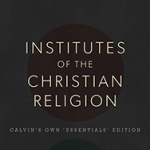 The Institutes of the Christian Religion by John Calvin. Banner of Truth continues, with quiet significance, to serve the church through republishing classic works of Puritan and Reformed theology. Their most recent offering of unusual importance is Robert White’s translation of the 1541 edition of Calvin’s Institutes of the Christian Religion. Carl Trueman says, “Calvin aficionados will know that the 1539 and 1541 editions embody key structural changes and elaboration of the somewhat brief 1536 edition and stand in significant continuity with the 1559. It is also worth knowing that the French editions were often less caustic about opponents and more explicitly precise in their polemical targets than the Latin.” This volume might be the best introduction into the great Reformer’s theology for the average lay member. It functions like an “abridgement for the common man” of the final, and most widely used, 1559 Latin edition. If you have some extra Christmas dollars lying around next month buy this book and slowly work through it next year. An immense spiritual feast awaits.
The Institutes of the Christian Religion by John Calvin. Banner of Truth continues, with quiet significance, to serve the church through republishing classic works of Puritan and Reformed theology. Their most recent offering of unusual importance is Robert White’s translation of the 1541 edition of Calvin’s Institutes of the Christian Religion. Carl Trueman says, “Calvin aficionados will know that the 1539 and 1541 editions embody key structural changes and elaboration of the somewhat brief 1536 edition and stand in significant continuity with the 1559. It is also worth knowing that the French editions were often less caustic about opponents and more explicitly precise in their polemical targets than the Latin.” This volume might be the best introduction into the great Reformer’s theology for the average lay member. It functions like an “abridgement for the common man” of the final, and most widely used, 1559 Latin edition. If you have some extra Christmas dollars lying around next month buy this book and slowly work through it next year. An immense spiritual feast awaits.
 Am I Really a Christian? by Mike McKinley. It’s rare I hear anyone recommending this book, but recommend they should. Am I Really a Christian? is the most accessible contemporary book on assurance any Christian can read. I reread it recently in preparation for a three-hour sermon on 1 John I hope to give before a group of college students this week. Anyone familiar with McKinley knows he possesses witty wisdom to boot and one can see it in how he titles the first seven chapters:
Am I Really a Christian? by Mike McKinley. It’s rare I hear anyone recommending this book, but recommend they should. Am I Really a Christian? is the most accessible contemporary book on assurance any Christian can read. I reread it recently in preparation for a three-hour sermon on 1 John I hope to give before a group of college students this week. Anyone familiar with McKinley knows he possesses witty wisdom to boot and one can see it in how he titles the first seven chapters:
- You Are Not a Christian Just Because You Say That You Are
- You Are Not a Christian Just Because You Like Jesus
- You Are Not a Christian If You Haven’t Been Born Again
- You Are Not a Christian If You Enjoy Sin
- You Are Not a Christian If You Do Not Endure to the End
- You Are Not a Christian If You Don’t Love Other People
- You Are Not a Christian If You Love Your Stuff
The eighth chapter ably answers the logical question generated by the first seven, “Can I Ever Really Know If I Am a Christian?” “Yes you can!” says McKinely. But it’s the final chapter that makes this offering unique. There McKinley details the necessity of a local church in the assurance of an individual Christians. Not only can conversations on assurance become overly objective or subjective, they often become ridiculously individualistic. Placing assurance of salvation in the context of a local church is just what the conversation and doctrine needs. With a thoroughly irenic tone saturating the Christ-centered content, this is a book I’d love to see used in every church.
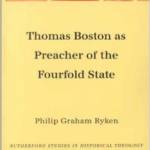 Thomas Boston as Preacher of the Fourfold State by Phil Ryken. Part of my master’s thesis was occupied with Boston and ever since then I’ve found myself returning to his works with increasing frequency. His life is fascinating and his ministry a model of faithfulness to the ordinary means. Jonathan Edwards was taken with the Scotsman, calling him a “truly great divine.” Edwards doesn’t seem to overreach; Boston’s most famous theological work, Human Nature in Its Fourfold State, was the widest selling English book in the 18th century. Thomas Boston as Preacher of the Fourfold State is a lightly edited version of Ryken’s doctoral dissertation and what a fine study it is. The prose is clear, the research immense, and the analysis incisive. Like any dissertation, the audience is limited. This title will be most attractive – and maybe even essential – for any student of 18th century evangelicalism.
Thomas Boston as Preacher of the Fourfold State by Phil Ryken. Part of my master’s thesis was occupied with Boston and ever since then I’ve found myself returning to his works with increasing frequency. His life is fascinating and his ministry a model of faithfulness to the ordinary means. Jonathan Edwards was taken with the Scotsman, calling him a “truly great divine.” Edwards doesn’t seem to overreach; Boston’s most famous theological work, Human Nature in Its Fourfold State, was the widest selling English book in the 18th century. Thomas Boston as Preacher of the Fourfold State is a lightly edited version of Ryken’s doctoral dissertation and what a fine study it is. The prose is clear, the research immense, and the analysis incisive. Like any dissertation, the audience is limited. This title will be most attractive – and maybe even essential – for any student of 18th century evangelicalism.
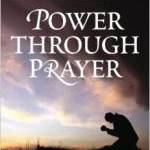 Power Through Prayer by E.M. Bounds. Whenever I need some counsel to quick start my devotion to prayer I usually turn to E.M. Bounds. The old Methodist man writes with a fervor and lucidity that constantly makes me drop his book to bend my knees before God. That’s what every book on prayer should aspire to do. Power Through Prayer is written to gospel preachers, so it will be of unique benefit to pastors. The chapters on “Men of Prayer Needed” and “Much Prayer the Price of Unction” will hit home for any man who regularly ascends to the sacred desk. Highly recommended!
Power Through Prayer by E.M. Bounds. Whenever I need some counsel to quick start my devotion to prayer I usually turn to E.M. Bounds. The old Methodist man writes with a fervor and lucidity that constantly makes me drop his book to bend my knees before God. That’s what every book on prayer should aspire to do. Power Through Prayer is written to gospel preachers, so it will be of unique benefit to pastors. The chapters on “Men of Prayer Needed” and “Much Prayer the Price of Unction” will hit home for any man who regularly ascends to the sacred desk. Highly recommended!
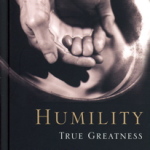 Humility by CJ Mahaney. I once heard Dever say Mahaney’s Humility should be the 28th book in the New Testament. Personally, that self-conscious exaggeration isn’t misplaced. I have a list of books I want to reread every year, and a list of books I must reread every year. There are only two books in that latter category and Humility is one of them. I bet it’s because I am so prone to pride and thus continually need the truth in this book. It always disrupts roots of arrogance and increases my affection for lowly weakness. If there is one book, outside of the Bible, I could get every church member to read and emulate, it would be this one. If you’ve yet to read it, order a copy today and let this Scripture-shaped scalpel do its work on your soul.
Humility by CJ Mahaney. I once heard Dever say Mahaney’s Humility should be the 28th book in the New Testament. Personally, that self-conscious exaggeration isn’t misplaced. I have a list of books I want to reread every year, and a list of books I must reread every year. There are only two books in that latter category and Humility is one of them. I bet it’s because I am so prone to pride and thus continually need the truth in this book. It always disrupts roots of arrogance and increases my affection for lowly weakness. If there is one book, outside of the Bible, I could get every church member to read and emulate, it would be this one. If you’ve yet to read it, order a copy today and let this Scripture-shaped scalpel do its work on your soul.
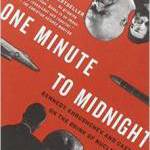 One Minute to Midnight: Kennedy, Krushchev, Castro on the Brink of Nuclear War by Michael Dobbs. My recent forays into historical fiction have included or focused on the Cuban Missile Crisis, so I figured it was time to read Dobbs’ highly commended treatment of that epochal event. Dobbs admits that the Crisis has generated a cottage industry of publications, theories, and analyses of those thirteen days in October. So why another book? His book is needed for two reasons. First, the discovery of new evidence that debunks popular myths that have surrounded the Crisis for decades. “Here, for the first time, are gripping accounts of Khrushchev’s plan to destroy the U.S. naval base at Guantánamo; the handling of Soviet nuclear warheads on Cuba; and the extraordinary story of a U-2 spy plane that got lost over Russia at the peak of the crisis.” Secondly, the book is utterly unlike anything in the field. Written like a thriller, Dobbs focuses on Black Saturday treating each hour of the day in one chapter. It feels almost like a 24 account of the Crisis. He should be applauded for not letting his exhaustive research slow down the fast-paced retelling. One Minute to Midnight is a mighty fine example of how thrilling history can be.
One Minute to Midnight: Kennedy, Krushchev, Castro on the Brink of Nuclear War by Michael Dobbs. My recent forays into historical fiction have included or focused on the Cuban Missile Crisis, so I figured it was time to read Dobbs’ highly commended treatment of that epochal event. Dobbs admits that the Crisis has generated a cottage industry of publications, theories, and analyses of those thirteen days in October. So why another book? His book is needed for two reasons. First, the discovery of new evidence that debunks popular myths that have surrounded the Crisis for decades. “Here, for the first time, are gripping accounts of Khrushchev’s plan to destroy the U.S. naval base at Guantánamo; the handling of Soviet nuclear warheads on Cuba; and the extraordinary story of a U-2 spy plane that got lost over Russia at the peak of the crisis.” Secondly, the book is utterly unlike anything in the field. Written like a thriller, Dobbs focuses on Black Saturday treating each hour of the day in one chapter. It feels almost like a 24 account of the Crisis. He should be applauded for not letting his exhaustive research slow down the fast-paced retelling. One Minute to Midnight is a mighty fine example of how thrilling history can be.
 11/22/63 by Stephen King. For years I’ve had friends tell me King is one of the best American storytellers around. The problem is, for me at least, his stories are far too horrifying and gruesome to merit attention. One of those friends recently challenged my presuppositions saying, “You know all his stuff isn’t sci-fi horror right?” And so it was that I came across 11/22/63, a novel which takes as its title the date President Kennedy was assassinated. King’s novel focuses on Jake Epping, a high school English teacher from Maine, whose old friend Al Templeton shows him a time portal (“the rabbit hole”) in the back of a hamburger diner.
11/22/63 by Stephen King. For years I’ve had friends tell me King is one of the best American storytellers around. The problem is, for me at least, his stories are far too horrifying and gruesome to merit attention. One of those friends recently challenged my presuppositions saying, “You know all his stuff isn’t sci-fi horror right?” And so it was that I came across 11/22/63, a novel which takes as its title the date President Kennedy was assassinated. King’s novel focuses on Jake Epping, a high school English teacher from Maine, whose old friend Al Templeton shows him a time portal (“the rabbit hole”) in the back of a hamburger diner.
The rules are simple: walk through the rabbit hole and suddenly you’re back on Sept. 9, 1958. It’s 11:58 a.m. There are, Al says, only two conditions. One, it’s not a one-way trip. It doesn’t have to be. But when you return, no matter how long you’ve stayed in the past — two days, five years, whatever — only two minutes have gone by in the present. Two, each time you go back to the past, there is a reset. Like a Magic Slate. It’s 11:58 a.m., and everything you did on your previous trip has been erased.
Al is about to die of cancer and he reveals the time portal to Jake in hopes he will return and save Kennedy from Lee Harvey Oswald. The potential for good is enormous. “If you ever wanted to change the world,” Al tells Jake, “this is your chance. Save Kennedy, save his brother. Save Martin Luther King. Stop the race riots. Stop Vietnam, maybe. . . . You could save millions of lives.” And so, off goes Jake. The ensuing story is brilliant, engrossing, and moving.
This one was some kind of fun.
Click here to find other entries in the Recent Reads series.
Surprising Sovereignty
Have you ever had a friend or family member who had two cents worth of opinions on everything? But their two cents rarely seemed to have much bearing on the issues at hand?
Such a person would have great affinity for someone like Bildad. It seems like having to wait through Zophar, Eliphaz, and Job, just like a balloon filled to max with air, has him ready to burst and so the second Job catches his breath Bildad utters the six-verse declaration of God’s greatness that is chapter 25.
GOD’S GREATNESS
The Lord is so great that, notice 25:5-6,
Behold, even the moon is not bright, and the stars are not pure in his eyes; how much less man, who is a maggot, and the son of man, who is a worm!
I’m not sure Job would disagree with anything Bildad has said. The speech is reverent, but utterly irrelevant. And so Job promptly responds in 26:4 by saying,
With whose help have you uttered words, and whose breath has come out from you?
It seems like Job is on to the friends’ role as unwitting stand-ins for Satan. 26:4 essentially asks, “Who has inspired the words you have spoken to me? It cannot be the God I know.” Just follow along from 26:7-14 as we hear about the greatness of this God Job knows. He:
- “stretches out the north”
- “hangs the earth on nothing”
- “binds up the waters”
- “covers the face of the full moon”
- “inscribes a circle on the waters”
- “astounds the pillars of heaven with his rebuke”
- “stills the sea”
- “shatters Rahab” (ANE sea monster)
- “makes fair the heavens”
- “pierces the fleeing serpent”
And what a majestic conclusion comes in 26:14,
Behold, these are but the outskirts of his ways, and how small a whisper do we hear of him!
But the thunder of his power who can understand?
Job has just ignited a theological time bomb that will explode the Counseling System of his friends. He says, “God reigns sovereign over all the created order and it’s only by shaking the created order that He will judge and defeat evil (evil he depicts in chapter 26 with Sheol, the sea, Rahab, and the fleeing serpent). Your Counseling System cannot account for this Sovereign Lord of all. His rule and control gets worked out in ways you can’t and won’t expect. It’s utterly surprising.
The question is will God’s sovereignty be a comfort to Job in the midst of his suffering?
SURPRISING SOVEREIGNTY
What will you do when God’s sovereignty surprises you? When His sovereign will throws you for a loop, what will be your first response? “How dare He do this? How dare He bring that into my life?” Or will God’s sovereignty be a comfort in the midst of your suffering?
Let’s notice two implications, from Job’s experience in this text, about God’s surprising sovereignty; two reasons why His sovereignty should be a comfort to us in suffering. Look back with me at 23:10, a verse that highlights these two points.
Job has just previously said, “I cannot find God. He seems to have deserted me.” Eliphaz says God is “high in the heavens” too great to be bothered with the affairs of men; Bildad says men are as maggots and worms when compared to the sovereign God of the universe, but notice Job’s great faith at the beginning of 23:10,
But he knows the way that I take . . .
This is a Hebraic way of saying, “He knows me. Even though I can’t seem to find Him, I know He has not forgotten about me.” Which leads to the first implication of surprising sovereignty: surprising sovereignty draws near. If you are suffering and are tempted to think God has deserted you, or if you have friends like Job’s who tell you God doesn’t care about your pain, take great comfort in these words: God knows His own and draws near to them. And He draws near to us, ultimately, through the work of His Son – Jesus Christ.
If you are not a Christian, the Bible says there is a time when God will come back and draw near to all mankind – it’s that final judgment Job’s longs for in chapter 24. Should you remain in sin and unbelief, His drawing close will be the most terrifying event you will ever know, for His justice must punish sin. But if you turn from your sin to Christ tonight in repentance and believe that He died on the cross to satisfy God’s judgment against your sin, God will draw near to you not with the sword of judgment, but with the joy of salvation and eternal life. I pray you would know this life-giving, paradigm-shattering sovereignty of God that gives new life to dead sinners.
The second implication I want you to see is that surprising sovereignty dooms fear. Look at how 23:10 ends,
. . . when he has tried me, I shall come out as gold.
“Yes,” Job says, “God reigns sovereign over my suffering – He’s trying me right now in this pain – but I need not fear what He’s doing for I will come out as gold.” Job’s friends put God’s sovereignty before His eyes so he would see his suffering as rather ordinary judgment for unrepentant sin. Yet, Job believes in God’s unpredictable power to use His suffering for unfathomable good.
Fear not, I am with thee, O be not dismayed,
For I am thy God and will still give thee aid;
I’ll strengthen and help thee, and cause thee to stand
Upheld by My righteous, omnipotent hand.
Is that a song you can sing in suffering? I hope so. Surprising sovereignty draws near and dooms fear. Will God’s sovereignty be a comfort to you when you suffer?
This post is adapted from my recent sermon, “Suffering with Eliphaz and Bildad,” on Job 22-26.
Keep to the Old-Fashioned Gospel
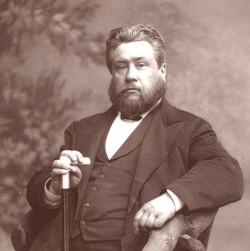 Back in my soccer playing days it was always interesting to see how guys prepared their mind for the game at hand.
Back in my soccer playing days it was always interesting to see how guys prepared their mind for the game at hand.
Some kept to a rigid routine driven by superstition, others lost themselves in some Jedi-like “the Force is with you” mental game, and many piped music through their headphones to drown out the world.
Apart from prayer, the way I like to prepare to preach is by reading something from The Prince: Charles Haddon Spurgeon. Sometimes it’s a sermon, other times it’s a lecture on ministry. One of my favorite paragraphs to meditate on comes from his lecture “Sermons – Their Matter.” Maybe it will be just what you need to ascend to the sacred desk with purposeful power.
In [preaching] it must be our aim to use the subject in hand with energy and effect, and the subject must be capable of such employment. To choose mere moral themes will be to use a wooden dagger; but the great truths of revelation are as sharp swords. Keep to doctrines which stir the conscience and the heart. Remain unwaveringly the champions of a soul-winning gospel. God’s truth is adapted to man, and God’s grace adapts man to it. There is a key which, under God, can wind up the musical box of man’s nature; get it, and use it daily. Hence I urge you to keep to the old-fashioned gospel, and to that only, for assuredly it is the power of God unto salvation.
Keep to that old-fashioned path and slay the Devil with the Spirit’s sharp sword.
Death, Be Not Proud
Yesterday I spent some time weeping with a good friend who is a member and deacon candidate at IDC.
Last week he and his wife found out their third child, a thirteen-week-old infant, has anencephaly. It’s a serious birth defect that means the baby, if it makes it to term, will not survive many hours out of the womb.
I weep at the consequences of sin. I weep for our Lord’s return.
But even through such pain we have faith, for death will not win.
Then shall come to pass the saying that is written:
“Death is swallowed up in victory.”
“O death, where is your victory?
O death, where is your sting?”
So death, be not proud.
“Death, Be Not Proud” by Audrey Assad
Death, be not proud, though the whole world fear you:
mighty and dreadful you may seem, but death, be not proud—
for your pride has failed you— you will not kill me.
Though you may dwell in plague and poison, you’re
a slave to Fate and desperate men—
so death, if your sleep be the gates to heaven,
why your confidence?
You will be no more — you will be no more — you will be no more.
Even death will die.
Even death will die.
– Inspired by John Donne
A Panel of Wisdom
I’ve long been something of a conference panel aficionado. I love the interactions on matters of Scripture and the opportunity to hear seasoned saints give sound wisdom to younger generations.
However, in my experience many panels prove to be rather disappointing. Sometimes it’s the lack of thoughtful questions, other times it’s that one speaker unnecessarily dominates the conversation, or that every panelists weighs in on every question resulting in an hour panel only covering three questions.
But every once in a while my panel “connoisseurment” uncovers a diamond of discussion. One such occasion came last week when I was scrounging around the resources from the Basics Conference put on by Alistair Begg and Parkside Church.
FROM ACROSS THE ATLANTIC THEY CAME
At the third annual Basics Conference in 2002 Alistair Begg invited three men who had a significant influence on his ministry as a pastor and preacher – Derek Prime, Eric Alexander and Dick Lucas. Begg said, “[These men] are supremely men of the Word. Their enduring effectiveness for the Lord is grounded on the steady conviction that the Bible is God’s one and only means of making His voice heard in the church and the world today.”
Do you know Alexander, Lucas, and Prime?
Eric Alexander was for many years Minister of St. George’s Tron, a Presbyterian congregation in the city center of Glasgow. He continues to bring Bible expositions to numerous conferences and conventions, where a strong passion for Christ pervades his winsome and powerful preaching. When you listen to Alexander you can’t help but notice the effect he’s had on Sinclair Ferguson.
Dick Lucas is an Anglican evangelical who was rector of St. Helen’s Bishopsgate in the city of London for 30 years. There he taught the Bible to large congregations of students on Sunday evenings and businessmen at Tuesday luncheons. In 1986 he founded The Proclamation Trust, which equips and encourages pastors in faithful proclamation of the Word. Begg said Dick’s insistence that “listening” to the Bible is the key to speaking its message profoundly changed his preaching.
Derek Prime pastored an independent evangelical church in London and Charlotte Chapel in Edinburgh, Scotland, where he served for 18 years and where Begg was his assistant. Derek has written extensively and helpfully, and his warm pastoral wisdom and effectiveness as a leader have influenced many pastors throughout the UK and abroad.
At the end of the conference Begg sat down with his three mentors for a panel entitled, “Fatherly Advice to Younger Ministers” and the ensuing discussion was lively, informative, and warm. Pastors young and old will welcome the accented and thoroughly biblical wisdom these brothers provide. Listen below or download here.



